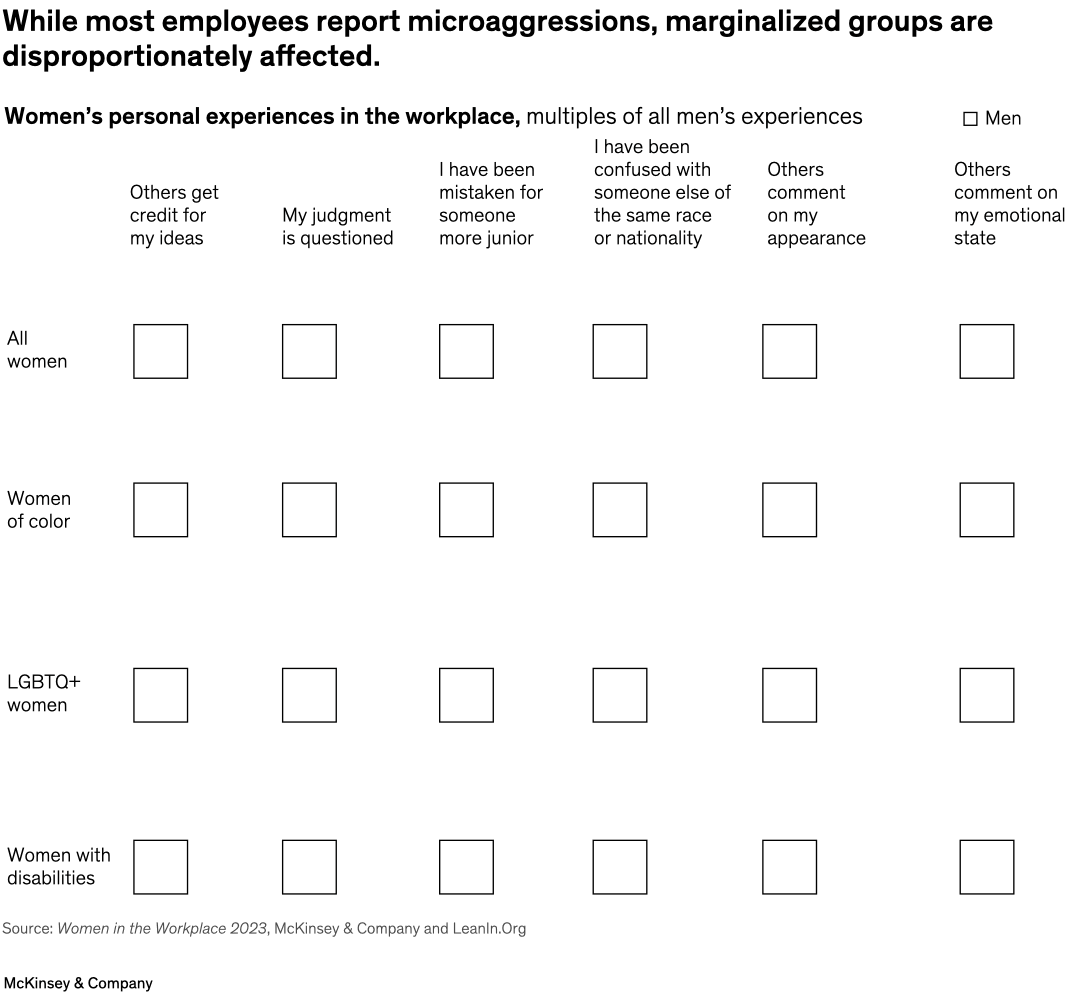In the ongoing effort to create a more inclusive and equitable workplace, understanding and addressing microaggressions is crucial. Microaggressions are subtle, often unintentional, behaviours or comments that can perpetuate stereotypes or demean individuals based on their gender, race, or other aspects of their identity. For women in the workplace, these microaggressions can significantly impact their professional experience and overall well-being. As male allies, it is essential to recognize, address, and prevent microaggressions to foster a supportive and inclusive environment.
Understanding Microaggressions
Microaggressions can take many forms, including:
1. Comments or Questions: Remarks that might seem innocuous but reinforce negative stereotypes or assumptions. For example, questioning a woman’s competence or qualifications, or making comments about her appearance instead of her professional abilities.
2. Behavioural Slights: Non-verbal actions such as interrupting women more frequently than men, ignoring their contributions in meetings, or showing surprise at their success in male-dominated fields.
3. Environmental Microaggressions: Aspects of the workplace culture or policies that subtly exclude or disadvantage women, such as a lack of representation in leadership roles or gender-biased dress codes.
The Impact of Microaggressions
Microaggressions may seem minor in isolation, but their cumulative effect can be profoundly damaging. According to the McKinsey report “Women in the Workplace,” microaggressions contribute to a hostile work environment, lower job satisfaction, and hinder career advancement for women. They can also lead to increased stress and reduced psychological safety.

“For women, hybrid or remote work is about a lot more than flexibility. When women work remotely, they face fewer microaggressions and have higher levels of psychological safety.”(McKinsey : Women in the Workplace 2023)
This quote underscores the importance of addressing microaggressions in the workplace. The ability to work remotely can provide women with a buffer against these negative experiences, highlighting the need for male allies to actively combat microaggressions in all work environments.
Steps for Male Allies to Address Microaggressions
1. Educate Yourself: Learn about the different types of microaggressions and their impact. Understanding these behaviours is the first step toward recognizing and preventing them.
2. Listen and Observe: Pay close attention to the experiences of your female colleagues. Listen to their stories and observe interactions in the workplace to identify instances of microaggressions.
3. Intervene When Necessary: If you witness a microaggression, intervene in a respectful and supportive manner. This can involve speaking up in meetings, redirecting conversations, or privately discussing the issue with the individuals involved.
4. Promote an Inclusive Culture: Encourage policies and practices that promote inclusivity and respect. This includes advocating for diversity training, equitable opportunities, and representation of women in leadership roles.
5. Reflect on Your Own Behaviour: Regularly reflect on your actions and attitudes to ensure you are not unintentionally contributing to a hostile environment. Seek feedback from female colleagues and be open to learning and improving.
6. Support Remote and Hybrid Work: Recognize the benefits of remote and hybrid work arrangements in reducing microaggressions and enhancing psychological safety for women. Advocate for flexible work policies that support these arrangements.
As male allies, it is our responsibility to actively combat microaggressions and support a workplace where all individuals can thrive. By educating ourselves, listening to our colleagues, intervening when necessary, and promoting an inclusive culture, we can help reduce the prevalence of microaggressions and create a more equitable and supportive environment for everyone. The journey towards gender equality in the workplace requires the commitment and action of all allies, and addressing microaggressions is a vital part of this mission.
For further insights and strategies, refer to the [McKinsey report “Women in the Workplace”](https://www.mckinsey.com/featured-insights/diversity-and-inclusion/women-in-the-workplace).





